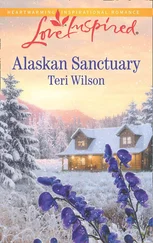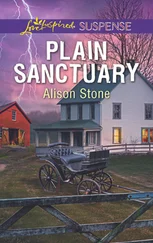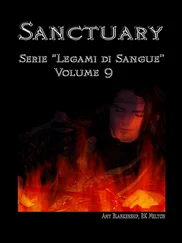G. Michael Hopf
SANCTUARY
Olympia, Washington, Republic of Cascadia
Haley opened her eyes and looked at the alarm clock that sat next to her on the nightstand. The green fluorescent hands of the clock illuminated 7:18 A.M. Frustrated by another sleepless night, she gazed toward the brightening horizon to the east. She let go of the anxious feeling living deep inside of her for a moment as she lay there, staring. She didn’t want to tear her eyes away for fear she’d miss the sun’s first rays of the day.
The mornings when the typical layer of fog didn’t hang over the city provided sunrises to marvel at. She loved these mornings, when she could appreciate the simple joys in life. Her life now was so different than her early years, and it made her treasure moments like these. It’s only when you lose the things that mean so much that you finally realize their importance. So often she wondered how people in the old days must have taken their lives for granted. How they must have thought that life as they knew it could never end. But she now knew, not only because of her own experience but also from what history teaches, nothing lasts forever. Life and especially death are a major part of human existence. She had seen her share of death, more than she would ever care to see again, but she knew that what peace her country had would end one day.
The deep orange light of the rising sun crested the horizon and lit up her sparsely furnished bedroom. Her sleigh bed sat parallel to the large window that was providing her the solar show. Opposite her bed, sitting like a monolith, was an antique armoire; it towered in the room at over six feet. She took great joy in shopping and in decorating her house with quality pieces from around the world. She pulled her thick duvet up to her chin and watched Mother Nature give birth to this new day.
The rumbling of the truck driving down her driveway jolted her back to the present. The man from the local dairy was delivering her weekly eggs, milk, butter, and cream. She rolled onto to her back and looked at the ceiling.
John was scheduled to arrive in the late morning to continue the interview. She was dreading it. All weekend, she questioned why she ever agreed to do these interviews in the first place. The past was painful enough—having to talk about her memories at length only made those distant moments fresh again. It had been years since she had thought about some of the people who had been in her life when she was a young child. Haley was overwhelmed at the prospect of having to open up again.
She mused why her father had taken the time to tell her the entire story of his life. She would never forget that winter day when he sat her down and told her how everything came to be, how society collapsed and came back together. Some of the details haunted her to this day.
Hunger pangs prodded her to finally rise out of bed and start her day. Haley was the type of person who enjoyed sticking to a routine, and she looked forward to her morning one every day. She couldn’t quite put her finger on whether it was the freshly brewed French-roast coffee with a little cream she liked better, or the lightly toasted rye bread smeared with a large tab of sweet butter, but either way, she couldn’t start her day without it.
Operating on autopilot, she grabbed the stainless steel teakettle, filling it with filtered water from a five-gallon jug she kept in her pantry. Fresh, clean water was a precious commodity. After the lights went out, many of the systems and infrastructure that brought potable drinking water to many municipalities had collapsed. Even after decades of refurbishment, many had not been rebuilt or brought to the standards people had been accustomed to before. Olympia’s municipal water system still had issues and Haley didn’t trust it. She had a filtration system installed in her house years ago, but even with that, she chose to have her drinking water brought in weekly from a company that had a small reservoir located fifteen miles outside of town.
Even though she had been alive before the lights went out, she had a difficult time remembering the everyday luxuries her parents had spoken of. Fresh available fruits, varieties of meat, reliable electricity, ease of travel, but most of all fresh water. She knew that the way that people treated and respected water was far different now than in the Before. When the water stopped flowing freely and easily, the well-manicured landscaping went with it. Those picturesque scenes of thick lush lawns and endless flowering plants were replaced with robust gardens. What water people had rationed to them, they used sparingly and productively, to provide the basics. It just made so much sense to her. She understood the desire to see pretty flowers and yards covered in grass, but after living through the scarcity of the time that followed the attacks and the Great Civil War, she would always be prepared. Many in Cascadia shared the same pragmatic outlook. Few looked to the government, much less to anyone else, to provide or take care of them. An entire generation had lived through and had taught their progeny to be more self-reliant and to live self-sustainably.
The whistle of the teakettle pulled her away from her other morning chores. She poured the hot water over the finely ground coffee in the French press, the rich, slightly burnt aroma filling her nostrils. That smell alone made her day. She made her way to the front door to pick up the dairy products that had been delivered. With the cool temperature outside, her cream would be the perfectly chilled companion to her hot coffee.
She opened the front door and was surprised to see a man hovering at the entrance, his face obscured.
“Are you coming to get this?” he asked, holding up a basket filled with the dairy products she was in need of.
It was a voice she knew instinctually, but she almost couldn’t believe it.
“Hunter? Hunter, is that you? Oh my God, it’s you!” Haley practically shouted. She grabbed her son into an embrace. Hugging him tightly, she said, “My boy! How are you? I can’t believe you’re here!”
“Mom, hi. Uh, Mom, you’re crushing me and the eggs,” Hunter said.
“I’m sorry. I just didn’t know I’d see you this morning. Had I known I would have prepared the hollandaise for some eggs Benedict,” Haley said, petting his hair. She still embraced him tightly, almost as if she was afraid to let him go.
“Sorry I didn’t call, but I wanted to surprise you,” Hunter said.
She pulled back and stared into his blue eyes.
Hunter Rutledge was her oldest son. He was a tall man, standing at six feet two inches, and he had the signature Van Zandt brown hair and piercing light eyes. His wide shoulders hovered over his tapered, lean body. When Haley looked at Hunter, she saw her own father.
“Come in before you freeze. Sorry, I don’t know what I was thinking having you stand in the cold any longer!” Haley said apologetically as she led him into the warm house.
“I didn’t mean to startle you, Mom. But your timing was uncanny. I picked up the basket and was about to knock when you opened the door,” Hunter said, with a slight nasal edge to his voice. His nose was a little stuffy from the cold, damp air.
She took the basket from him and rushed back into the kitchen.
“Do you want some fresh coffee?” she hollered.
“Sure, sounds good,” he responded as he took off his coat and walked into the living room. He looked around. It had been a long time since he had seen his mother. The house she now lived in was not one he was familiar with; she had moved into it after his father had died a few years ago. Tired from his long journey, he sat down on a Victorian-style winged love seat.
Читать дальше
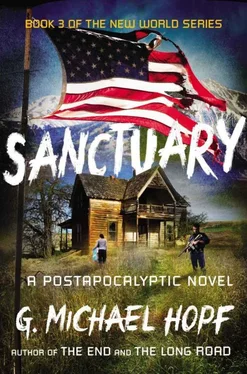

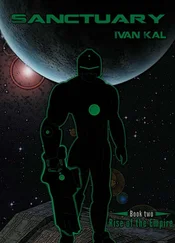
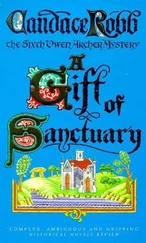
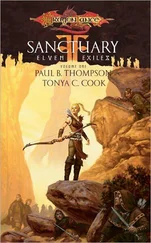
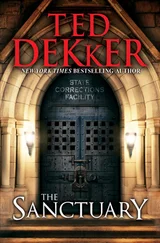

![Беар Гриллс - The Hunt [=The Devil's Sanctuary]](/books/428447/bear-grills-the-hunt-the-devil-s-sanctuary-thumb.webp)

